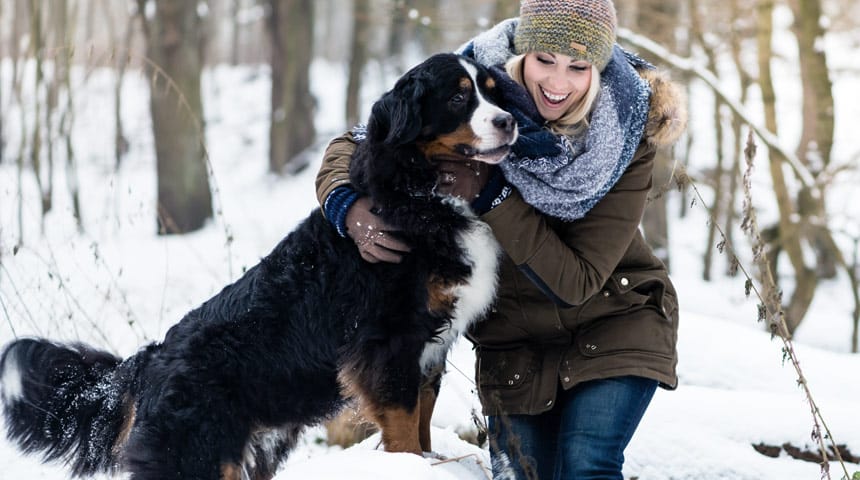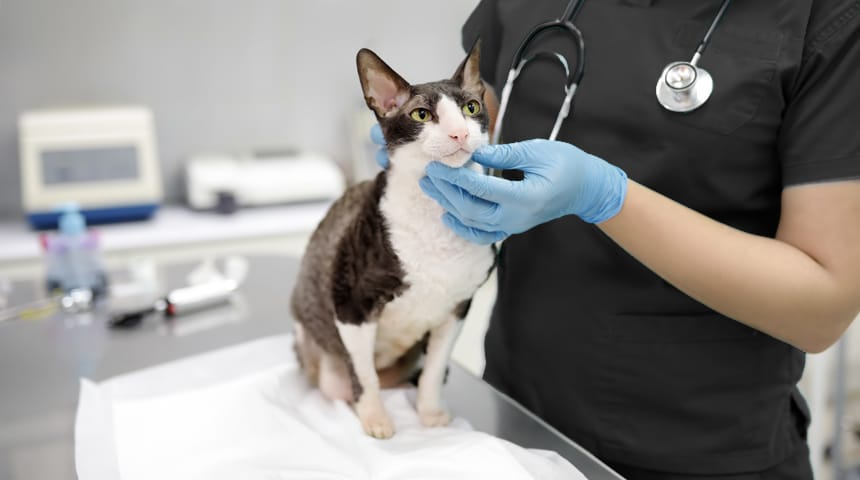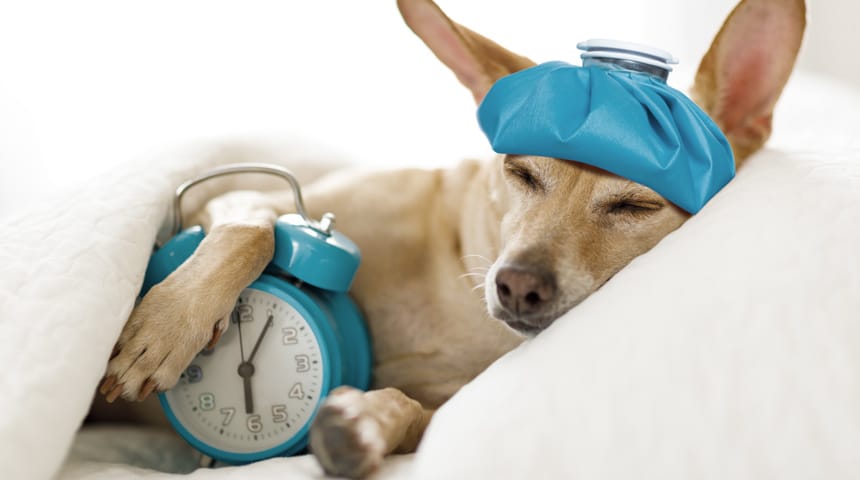Some dogs will have a harder time tolerating the cold. The same is true for cats. Don't forget that major temperature changes are less well tolerated by younger and older dogs. To help them get through the cold season, there are a few precautions to take. Naturally, dogs with thicker coats will be less cold than short-haired dogs. However, it is important to remember that snow can freeze under the dog's paws or belly. If your dog has just been groomed, he must be protected from the cold for about ten days, because the wash has removed his natural protection. To help them enjoy their outings more, you can get them a jacket and boots. There is a wide selection of warm and waterproof coats that protect the chest and belly. The best thing to do is to bring your dog along for a shopping spree!
Did you know that de-icing salt can cause irritation between your dog's toes and paw pads? To avoid injuries, you can apply a balm like Dermoscent Bio Balm or Pawguard. After a walk, it is recommended to rinse his paws well and dry them. This will prevent him from licking himself and aggravating the lesions. Additionally, for dogs with thick coats, remember to dry them well to avoid skin issues.
Note that it is possible to choose a salt- and chloride free de-icing product such as Windsor® Safe-T-PetTM. When using a de-icing salt, make sure your pet does not ingest it. This product could lead to poisoning.
If you practice winter sports, you should be aware of the sun's reflection on the snow. Over time, this can cause eye damage for your dog. Ideally, your dog should wear a pair of dog glasses. If your dog has never practiced winter sports with you, get him accustomed gradually.
If you let your cat go outside, it is imperative that he has a thick undercoat to protect him from the cold. Cats that don't go outside will shed less. Therefore, if you want to let your cat explore the outdoors during the winter, you'll have to get him used to it gradually and under supervision.
You should provide access for him to get warm. Using a cat flap might be a good option. Did you know that there are magnetic cat flaps on the market? Only your cat can use it. If a little door is new to him, don't force him. Use his favourite treat to make the experience enjoyable. Another option is to prepare a small shelter with a cushion or pillow, and place it where the snow can't get in. When he comes home, pay special attention to his paws and belly. Just like a dog, dry him off well!
Remember that your kitty's energy requirements will be greater. Leave a ration of kibble at their disposal. This way, he can come and have a little snack even if you are not present.
Happy winter, everyone!









